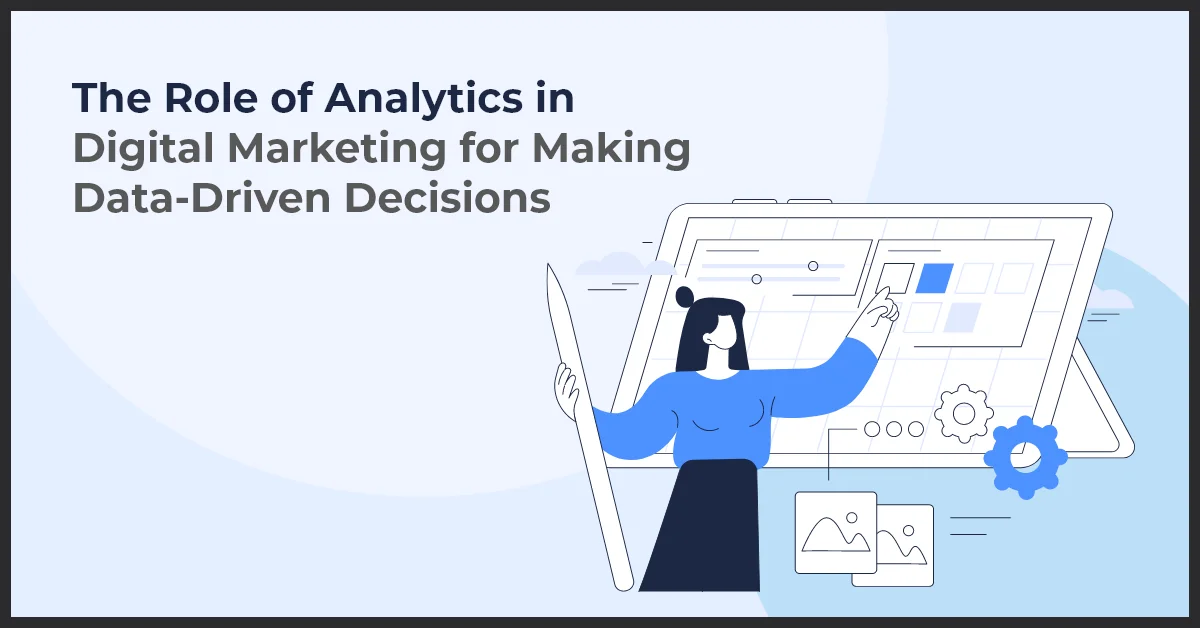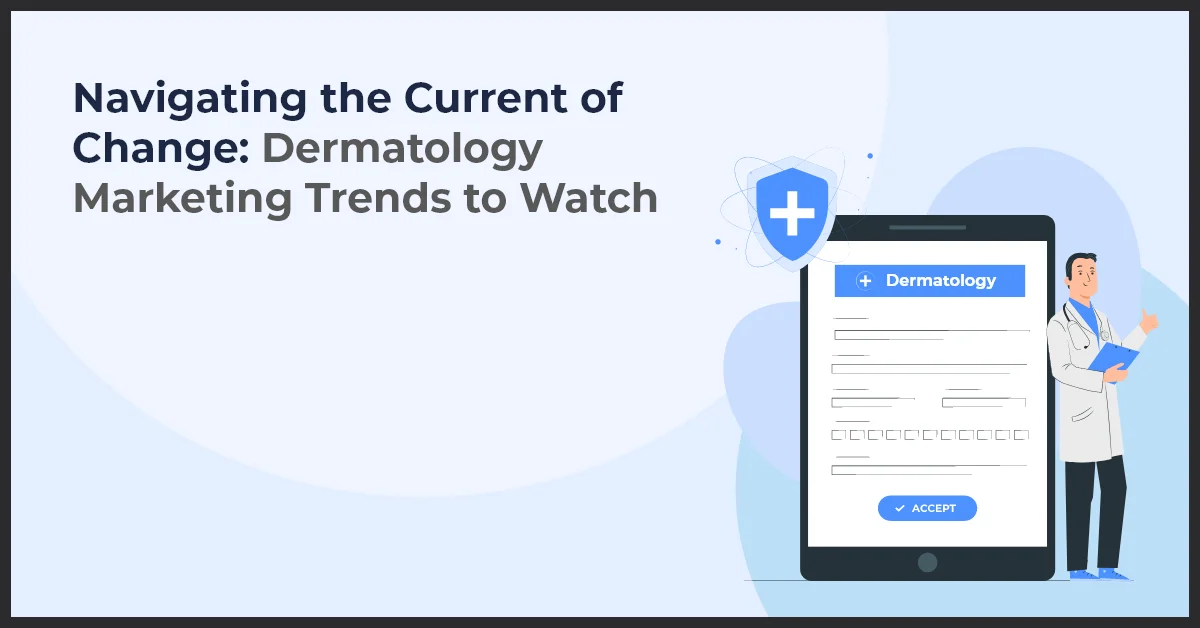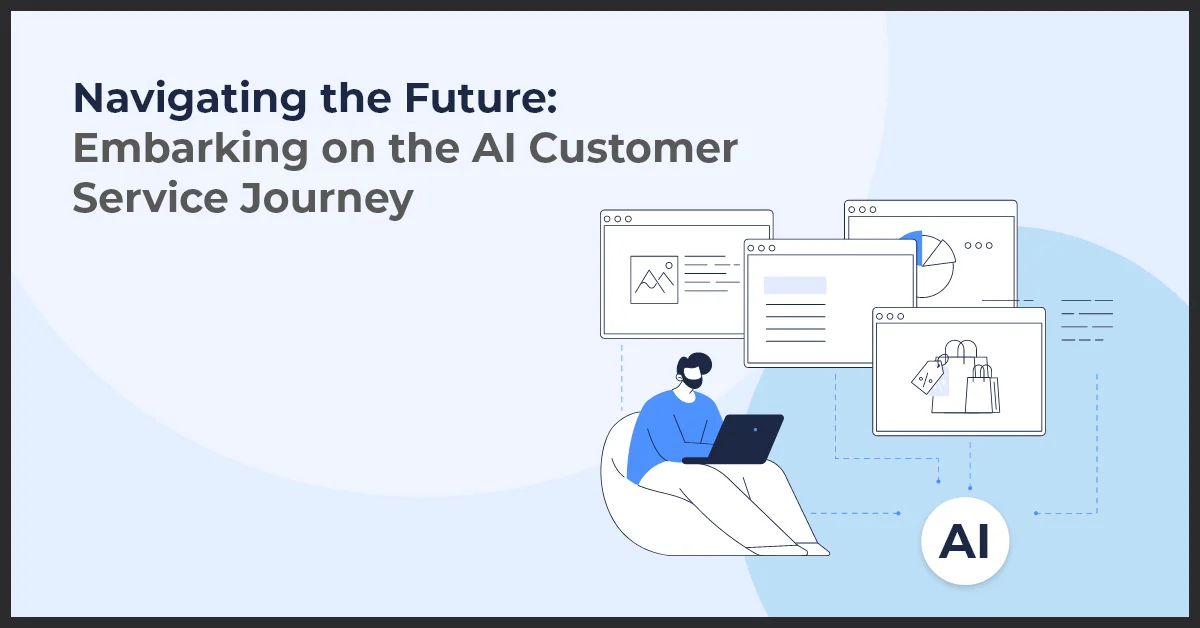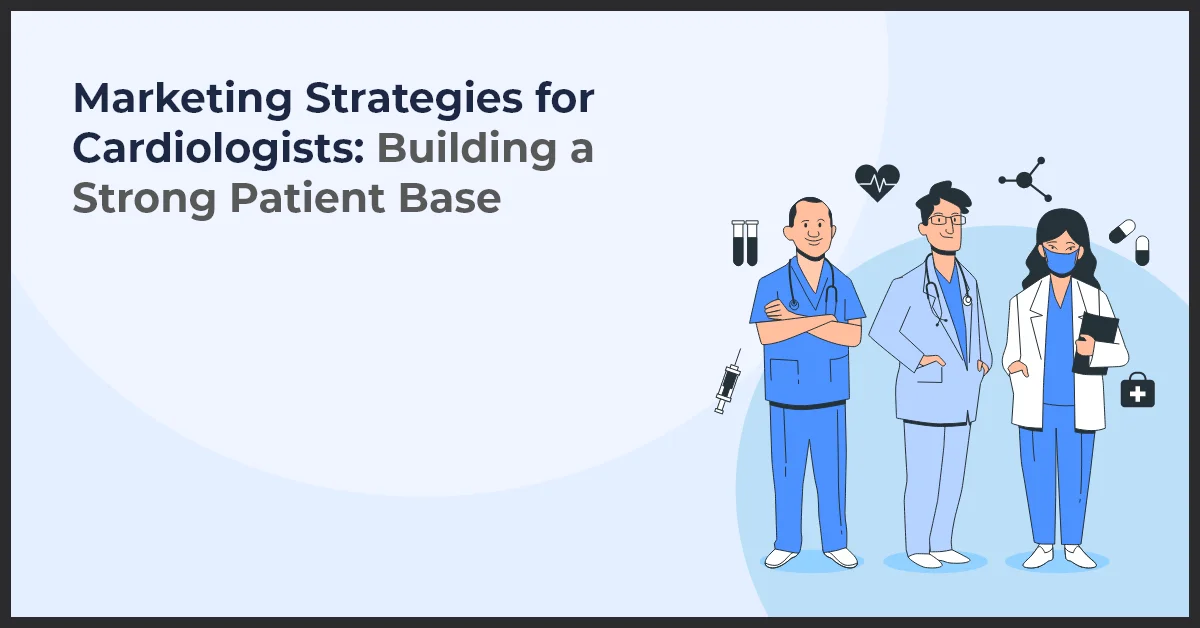The Role of Analytics in Digital Marketing for Making Data-Driven Decisions

Published on: June 6, 2024
Updated on: July 17, 2024
315 Views
- Digital Marketing
8 min read
American management guru Peter Drucker said, "What gets measured gets managed." We live in a world where businesses generate tons of data daily. The ability to gain insights from the data sets a successful business apart from the crowd.
Analytics plays a pivotal role in shaping business strategies by providing a foundation for data-driven decision-making. The core function of analytics in digital marketing is to interpret data and help decision-makers gain insights into user behavior, preferences, and interactions across digital channels.
While analytics has always had an important role in decision-making, its significance has amplified in a digital-first world where businesses interact with customers more through digital touchpoints than physical ones.
Analytics empowers marketers to make informed decisions based on evidence and trends rather than intuition. So, how can marketers optimize campaigns using analytics? How can it enhance user experiences and lay the foundation for data-driven decisions? Let’s dive in and understand the impact of analytics in digital marketing.
Types of Analytics Used in Digital Marketing
In today's digital economy, businesses engage with customers through various touch points during their journey. Analytics in digital marketing has multiple dimensions, and marketers need to analyze data from multiple sources. Each source provides valuable insights into different aspects of online activities. To gain a bird's-eye perspective on customer journeys, organizations must leverage the following types of analytics:
1. Website Analytics
Website Analytics is the oldest and most widely used type of digital marketing analytics. Tracking website traffic, user behavior, and conversion rates provides invaluable insights for optimizing website performance and enhancing the user journey.
2. Social Media Analytics
Social media is the most widely used tool for marketing, with an average user spending more than two hours on various platforms daily. Marketers dive deep into social media metrics to measure engagement, track trends, and refine their content strategies. This approach maximizes engagement and lowers customer acquisition costs.
3. Email Marketing Analytics
Email marketing is as old as the Internet, and analyzing the performance of your email marketing campaigns is one of the basic pillars of success. Tracking KPIs such as open and click-through rates plays a vital role in tailoring campaigns, ensuring audience engagement, and maximizing conversions.
4. Advertising Analytics
PPC or Pay Per Clicks allows you to reach your target audience faster than any other medium. Tracking campaign performance through metrics like impressions, click-through rates, and conversions is essential. These insights empower you to optimize ad spending, ensuring a maximized return on investment.
Benefits of Using Analytics in Digital Marketing
Leveraging analytics in digital marketing provides numerous advantages that directly contribute to your campaign's success and overall business growth. Here are some of the biggest benefits of digital analytics:
Targeting and Audience Segmentation
Digital marketing is a slippery slope. You can lose thousands of dollars without adding tangible value to your marketing goals. Analytics empowers your team to understand your audience better and run highly targeted campaigns. It lets you segment your audience and target them with personalized communication that strikes a chord based on needs and aspirations.
Tracking and Measuring Campaign Performance
Managing a campaign without analytics is like shooting arrows in the dark, not knowing whether they are hitting the targets. By monitoring key metrics, you can assess the performance of campaigns in real-time. It allows you to optimize the campaign to capitalize on strengths and mitigate your weaknesses.
Identifying Trends and Patterns
Digital media is dynamic, and the trends change at the drop of a hat. When you use analytics in digital marketing, you can uncover the latest trends and patterns in user behavior. It enables you to stay on top of your marketing campaign and leverage the latest trends in the market.
Optimizing Marketing Strategies and Budget Allocation
Resource allocation is one of the biggest challenges for any organization. Data-driven insights enable decision-makers to allocate resources effectively, ensuring that marketing budgets deliver maximum impact for your goals.
Key Metrics and KPIs in Digital Marketing Analytics
When it comes to digital marketing analytic, there are plenty of key metrics or Key Performance Indicators.. However, not all metrics and KPIs are relevant for all businesses, and conversely, getting fixated on a single data point would be like "missing the forest for the tree." To get a broad picture of the performance of the campaign, here are a few KPIs that you must track-
- Traffic and Conversion Rates - Website analytics provide insights into the volume and sources of website traffic and conversion rates. You can identify high-performing channels and optimize content for better conversions.
- Engagement Metrics - Metrics such as bounce rate, time on site, and pages per session provide insights into user engagement. Analyzing these metrics helps improve the overall user experience and website performance.
- Social Media Metrics - Key social media metrics such as likes, shares, comments, and follower growth help you refine social media strategies for increased engagement and brand awareness.
- Email Marketing Metrics - Open rates, click-through rates, and conversion rates offer insights into the effectiveness of email campaigns and help refine targeting for better results.
- Advertising Metrics – You need to track click-through rates and conversions to assess the performance of advertising campaigns to optimize ad creatives and targeting based on these insights.
Tools and Platforms for Digital Marketing Analytics
There are dozens of tools that help you gather, analyze, and interpret data for the success of your campaign across different channels. Here are some of the most widely used tools and platforms for digital marketing analytics -
- Web Analytics - Google Analytics, Adobe Analytics, Hotjar, Kissmetrics, Crazy Egg, Semrush, Ahrefs, HubSpot, etc.
- Social Media Analytics - Facebook Insights, Twitter Analytics, HubSpot, Hootsuite, Brandwatch, Audience, etc.
- Email Marketing Analytics – Mailchimp, Constant Contact, Pardot, Zoho Campaigns, Omnisend, Campaign Monitor, Mailjet, etc.
- Advertising Analytics - Google Ads, Semrush, Facebook Ads Manager, Ahrefs, Optimizely, Microsoft Advertising, etc.
How to Use Analytics for Data-Driven Decision-Making in Digital Marketing
Having explored the advantages of analytics and identified essential tools for digital marketing, let's delve into practical applications. Discover how you can utilize these tools for making informed, data-driven decisions in your digital marketing strategies.
- A/B Testing for Website Optimization – Utilize A/B testing to compare various webpage versions and leverage analytics to identify the variant that attracts higher engagement. This valuable insight helps improve overall performance and boost conversion rates effectively.
- Content Strategy With Social Media Analytics – Leverage social media analytics to discern high-engagement content types. Utilize these insights to craft compelling content that resonates with your audience and boosts your brand's visibility.
- Email Marketing Segmentation and Content Personalization – Segment email lists based on analytics-driven insights to deliver personalized content to specific audience segments. It will increase email relevance and conversion rates.
- ROI Tracking with Advertising Analytics – Leverage advertising analytics to track your ad campaign’s ROI. Use these insights in allocating your budget and get the best out of it.
Challenges in Utilizing Analytics in Digital Marketing
While analytics is vital to your digital marketing campaign's success, there are challenges you cannot ignore. As a marketer, you need to be aware of the challenges and overcome them to stay ahead of the competition.
- Data Privacy and Compliance – There are growing concerns about data privacy, and we have seen laws like GDPR and CCPA that have laid down strict guidelines for data collection, management, and storage. You must adhere to regulations and ethical practices to protect user information and maintain trust.
- Data Accuracy and Reliability – The success of analytics rests on the accuracy and reliability of your input data. Validate data sources and implement robust data quality control measures to put analytics to optimal use.
- Skill and Knowledge – The ultimate success of any analytics tool rests on the ability of your team members to use these tools and make data-driven decisions. You have to bridge this gap with training and hiring experts.
Final Thoughts
Digital analytics has the power to supercharge your online strategies, ensuring every move hits the bullseye. However, this is only possible when you gain accurate insights. To achieve this, invest in top-tier analytics tools and wield them with expertise. Let every insight refine and elevate your digital marketing strategies. If the landscape seems a bit daunting, analytics experts can guide each step with precision toward your business success. Let's transform confusion into clarity and watch your digital marketing endeavors soar!
Ready to Unlock Digital Marketing Success Through Analytics? Let’s Talk!
The analytics experts at Growth Natives would love to pitch in. Drop us a line at info@growthnatives.com, and we will take it from there.
Frequently Asked Questions
Analytics in digital marketing involves collecting, analyzing, and interpreting data from various digital channels to understand customer behavior, measure campaign performance, and make informed decisions that optimize marketing strategies and outcomes.
Data-driven decisions are important because they help marketers base their strategies on factual insights rather than assumptions. This approach leads to more effective campaigns, better resource allocation, and improved ROI by targeting the right audience with the right message at the right time.
Digital marketing analytics can help businesses understand their target audience by providing insights into demographics, interests, preferences, and behavior patterns of website visitors, social media followers, email subscribers, and other online audiences. This information helps tailor marketing strategies to better meet audience needs and expectations.
Digital marketing analytics can help improve website performance by tracking key metrics such as traffic sources, user engagement, conversion rates, and site speed. By analyzing this data, marketers can identify areas for optimization, improve user experience, and increase website effectiveness in achieving business goals.
Future trends in digital marketing analytics include increased adoption of AI and machine learning for predictive analytics and personalization, advancements in data privacy and compliance regulations, greater emphasis on cross-channel and multi-touch attribution modeling, and the integration of offline and online data for a holistic view of customer behavior.



